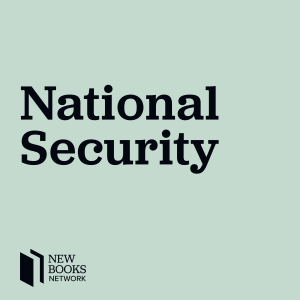
New Books in National Security
Science:Social Sciences

Nicholas Mulder, "The Economic Weapon: The Rise of Sanctions as a Tool of Modern War" (Yale UP, 2022)
 2022-02-16
2022-02-16
Download
Right click and do "save link as"
Economic sanctions dominate the landscape of world politics today. First developed in the early twentieth century as a way of exploiting the flows of globalization to defend liberal internationalism, their appeal is that they function as an alternative to war. This view, however, ignores the dark paradox at their core: designed to prevent war, economic sanctions are modeled on devastating techniques of warfare.
Tracing the use of economic sanctions from the blockades of World War I to the policing of colonial empires and the interwar confrontation with fascism, Nicholas Mulder uses extensive archival research in a political, economic, legal, and military history that reveals how a coercive wartime tool was adopted as an instrument of peacekeeping by the League of Nations. The Economic Weapon: The Rise of Sanctions as a Tool of Modern War (Yale University Press, 2022) casts an overdue light on why sanctions are widely considered a form of war, and why their unintended consequences are so tremendous.
Mathias Fuelling is a doctoral candidate in History at Temple University, working on a political history of Czechoslovakia in the immediate post-WWII years. He can be found on Twitter at https://twitter.com/bucephalus424
Learn more about your ad choices. Visit megaphone.fm/adchoices
Support our show by becoming a premium member! https://newbooksnetwork.supportingcast.fm/national-security
view more
More Episodes
012345678910111213141516171819
Create your
podcast in
minutes
- Full-featured podcast site
- Unlimited storage and bandwidth
- Comprehensive podcast stats
- Distribute to Apple Podcasts, Spotify, and more
- Make money with your podcast
It is Free
- Privacy Policy
- Cookie Policy
- Terms of Use
- Consent Preferences
- Copyright © 2015-2024 Podbean.com





